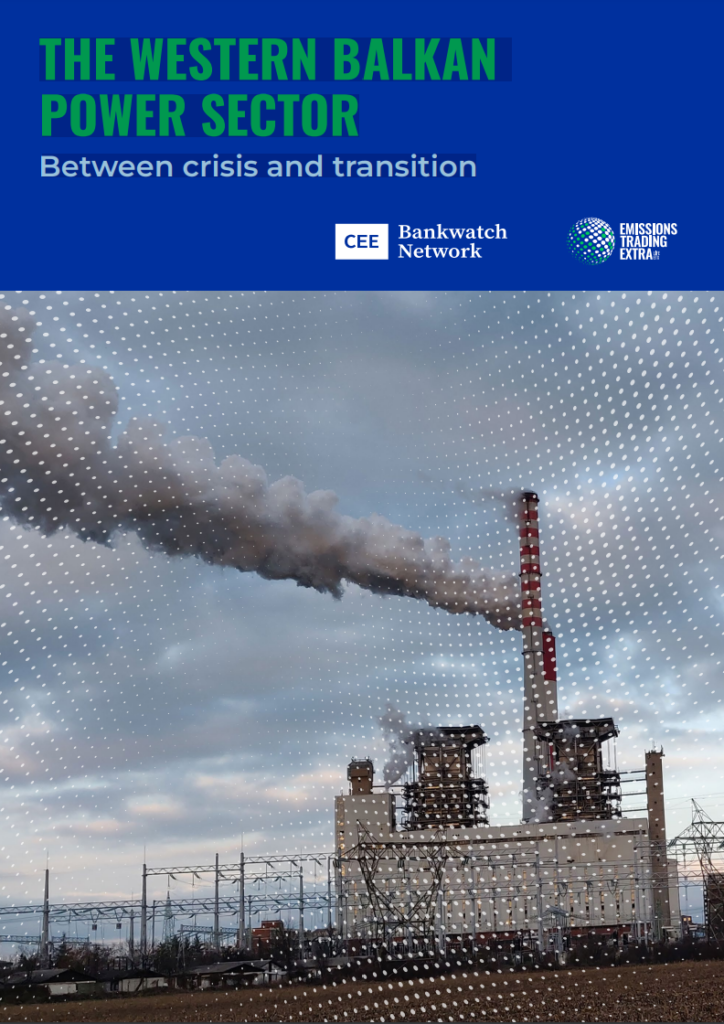The Western Balkan Power Sector: Between crisis and transition

As energy transition in the Western Balkans slowly proceeds, energy crisis has hit the region on four fronts: electricity prices, technical problems at coal plants, lack of water for hydropower, and skyrocketing biomass prices. This crisis is both a serious threat to the transition and an opportunity. Yet many of these countries still benefit from exporting coal-based electricity to the EU, and can now rake in more income than ever, even if it comes at the expense of public health. However, this cannot continue for many more years as the operation of the carbon border adjustment mechanism (CBAM) or a national or regional carbon pricing system to avoid CBAM is guaranteed to further raise coal-based electricity production costs.
According to the Commission’s proposal, the EU is going to start imposing charges on electricity imports in 2026, with higher impacts on countries with higher exports, higher emissions and a higher percentage of fossil fuels used in electricity generation. If the countries are to avoid being hit by CBAM, planning a just transition and introducing carbon pricing is more important than ever. Revenue from CBAM will be used for the EU budget, whereas domestic carbon pricing can directly contribute to energy transition in the countries. In fact, with a moderate carbon price of EUR 50 per tonne, the countries could collect a total of around EUR 2.8 billion annually to spend on a just and sustainable energy transition.
To the European Commission, European Parliament and European Council:
- Ensure CBAM enters force by 2026 at the latest.
- Ensure any CBAM exemptions for Western Balkans market-coupled electricity exporters are based on a thorough assessment of compliance with EU energy and climate, environmental and competition law, and that such assessments are based on, or at least consistent with, the Energy Community Secretariat’s annual implementation assessments.
- Ensure that any market-coupled countries aiming for exemption from CBAM report on their progress in 2024, 2027 and 2029 instead of just twice as proposed by the Commission.
- Ensure that CBAM exemptions are revoked for any countries which have increased their emissions due to electricity exports.
- Bring forward the deadline for market-coupled countries to establish ETS schemes to the beginning of 2028, as supported by the European Parliament.
- Ensure that the emissions of the electricity exported to the EU which are reported for the implementation of CBAM do not underestimate the actual emissions.
- Ensure a dedicated Just Transition Fund for the Western Balkans and Ukraine, possibly operated under the auspices of the Energy Community, is set up.
- Strengthen the Energy Community Treaty to include financial penalties for noncompliance, to reduce pollution, increase compliance and build a level playing field.
- Stop promoting the development of gas infrastructure in the Western Balkans, in order to avoid further carbon lock-in and derailment of the ongoing energy transition.
- Bring the Green Agenda process back on track to include clearer deadlines and responsibilities for implementation.
To the Energy Community Secretariat:
- Continue with the implementation and further development of the Decarbonisation Roadmap and National Energy and Climate Plans.
- Consider whether a regional carbon pricing scheme would add value compared to national schemes, or whether it would merely cause delays.
- Continue the work on dispute settlement cases to narrow the space for rollback on decarbonisation efforts.
To the Western Balkan governments:
- Remain on track with efforts to introduce carbon pricing before CBAM is introduced and ensure adequate transparency of revenue usage, including for just transition of coal regions.
- Ramp up efforts to decrease energy wastage and to build sustainable, appropriately-sited renewable energy facilities.
- Make realistic plans for a fossil fuel phase-out, bearing in mind the age and technical condition of the region’s coal plants.
- Avoid new lock-ins, particularly into fossil gas.
- Develop inclusive, bottom-up local just transition plans as soon as possible, utilising the experience from the EU Member States.










